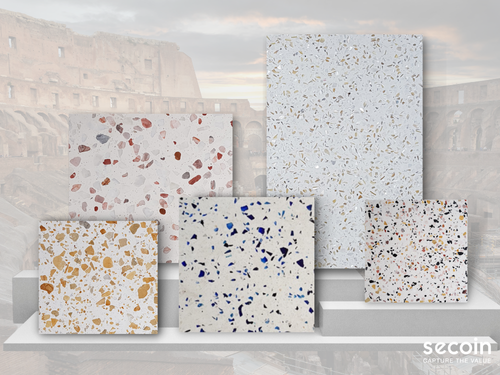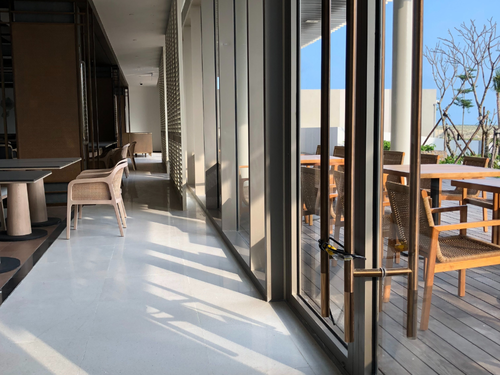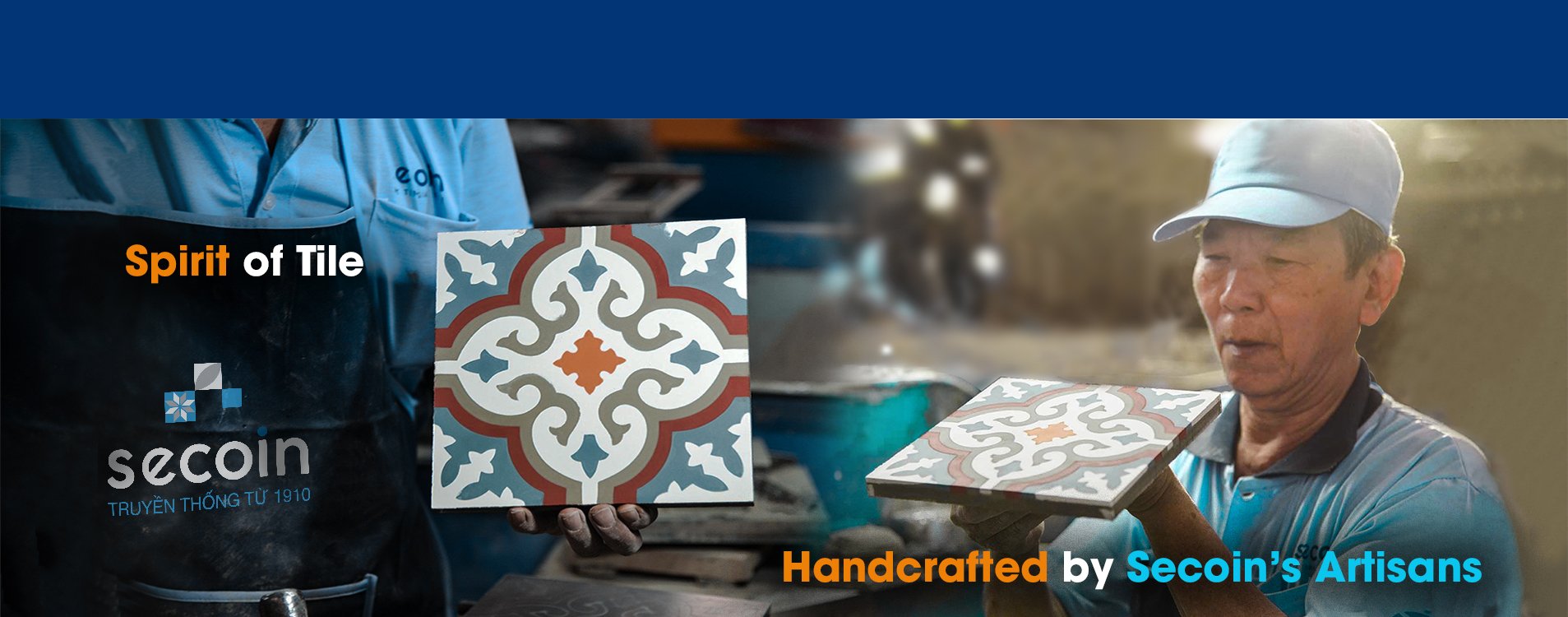The History of Terrazzo Tiles From Ancient Rome to Contemporary Interiors
|
Tuesday, 15/10/2024, 09:30 GMT+7 View: 6197 Terrazzo, a timeless flooring material that has graced buildings for centuries, continues to captivate designers and homeowners alike. At Secoin, we're proud to offer eco-friendly and artistic terrazzo tiles that blend ancient craftsmanship with modern sustainability. Let's embark on a journey through the fascinating history of terrazzo and discover why it remains a popular choice in contemporary interior design. Ancient Beginnings: The Roman EmpireThe story of terrazzo begins in ancient Rome, where workers discovered a unique way to reuse marble scraps from upscale building projects. By embedding these fragments in clay and polishing the surface, they created durable and attractive flooring. This early form of terrazzo, known as "pavimentum sectile," laid the foundation for the art form we know today.
 The Venetian Renaissance: Terrazzo's Golden AgeTerrazzo truly came into its own during the Venetian Renaissance. Artisans in Venice refined the technique, using marble chips from local quarries to create intricate designs. The term "terrazzo" itself comes from the Italian word for "terrace," as these floors were often installed in outdoor spaces.
Industrial Revolution: Mechanization and ExpansionThe 19th century saw terrazzo evolve with the advent of new technologies. The invention of electric grinding machines made the process faster and more efficient, allowing terrazzo to be used in larger commercial spaces. This period also saw the introduction of divider strips, which prevented cracking and allowed for more complex designs.
Mid-20th Century: Terrazzo's Modern RevivalAfter a brief decline, terrazzo experienced a resurgence in the mid-20th century. Architects and designers rediscovered its versatility and durability, incorporating it into iconic modernist buildings. This revival set the stage for terrazzo's enduring popularity in contemporary design.
Today: Eco-Friendly Innovation at SecoinAt Secoin, we're proud to continue the terrazzo tradition while innovating for a sustainable future. Our eco-friendly terrazzo tiles are crafted using recycled materials and low-impact manufacturing processes, reducing waste and energy consumption. We combine traditional techniques with cutting-edge technology to create tiles that are both environmentally responsible and visually stunning.
Key Features of Secoin's Terrazzo Tiles:• Eco-friendly materials: We use recycled glass, marble, and other sustainable aggregates.
• Low-impact production: Our manufacturing process minimizes energy use and reduces waste.
• Artistic designs: We offer a wide range of colors and patterns, from classic to contemporary.
• Durability: Our terrazzo tiles are built to last, reducing the need for frequent replacements.
• Versatility: Suitable for both residential and commercial applications.

The Future of TerrazzoAs we look to the future, terrazzo continues to evolve. At Secoin, we're exploring new sustainable materials and innovative design techniques to push the boundaries of what's possible with terrazzo. From smart tiles that can change color to ultra-durable formulations for high-traffic areas, the possibilities are endless.
From its humble beginnings in ancient Rome to its status as a favorite among eco-conscious designers, terrazzo has stood the test of time. At Secoin, we're honored to be part of this rich history, crafting beautiful, sustainable terrazzo tiles that will grace homes and businesses for generations to come. Discover the timeless beauty and modern sustainability of Secoin terrazzo tiles for your next project.
For more information about Secoin and its products, please visit SecoinTile.com. Written : secoin89@
Other blog : |


















